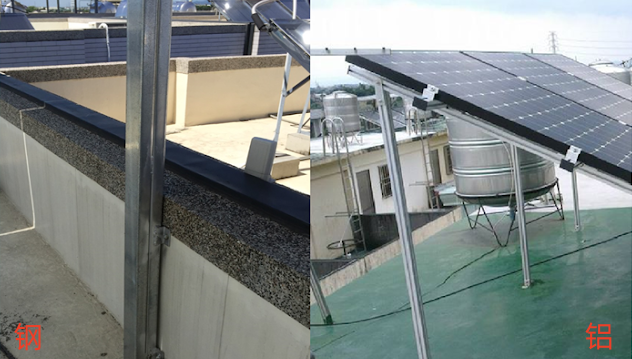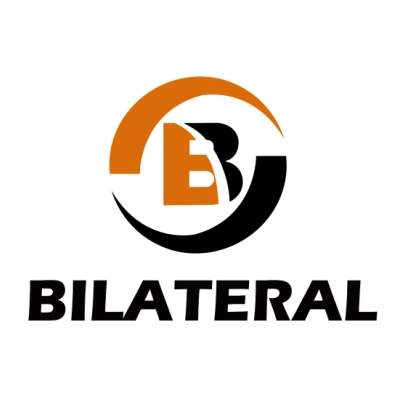Quick Answer
Choose aluminum for rooftop and corrosive environments—lightweight, corrosion-resistant, and fast to install. Choose galvanized steel for large-scale ground systems—higher strength and lower unit cost, but heavier and more maintenance-intensive.

Are You Still Relying on “Experience” to Choose Mounting Materials?
“Aluminum looks expensive, but easier to install.”
“Galvanized steel is strong and cheap.”
“For outdoor projects, steel must be more durable, right?”
These assumptions may sound familiar, but they can mislead.
With ROI and LCOE becoming the top metrics in modern solar projects, material decisions must be data-driven, not just gut-feeling-based. Let’s dive into five key criteria to help you choose wisely.
1. Which Material Has Better Structural Performance?
| Comparison Factor | Aluminum Alloy (6063-T5/T6) | Galvanized Steel (Q235 + HDG) |
| Density | ~2.7 g/cm³ (Light) | ~7.8 g/cm³ (Heavy) |
| Tensile Strength | 180–230 MPa | ≥375 MPa (depends on treatment) |
| Elastic Modulus | ~70 GPa | ~200 GPa |
| Corrosion Resistance | Excellent (natural oxide + anodized) | Moderate (coating-dependent) |
Conclusion:
- For large-span ground mounts, steel offers better load-bearing capacity.
- For rooftop or C&I projects, aluminum is preferable for lighter weight and easier handling.
2. Which Is Easier and Faster to Install?
Aluminum Mounting Systems:
- Highly pre-cut and pre-assembled for factory readiness
- Slot-track designs require no welding or drilling
- Lightweight allows single-person operation
- Compatible with various rooftops (metal sheets, concrete, sloped roofs)

Steel Mounting Systems:
- Heavier and bulkier
- Requires cranes or teamwork for lifting
- On-site cutting or drilling may be needed
- Zinc coating is easily damaged during installation, raising corrosion risk

Efficiency Stats (Solar Builder Magazine):
- Aluminum rooftop systems: ~150 kWp per worker-day
- Steel rooftop systems: ~80 kWp per worker-day
3. What Material Fits Your Application Scenario Best?
| Application Type | Recommended Material | Reason |
| C&I Metal Sheet Rooftops | Aluminum | Light, corrosion-resistant, and easy to install |
| Ballasted Flat Roof Systems | Aluminum | Easy for ballast layout and structural adjustment |
| Large Ground-Mounted Solar Farms | Galvanized Steel | Strong, affordable, ideal for long spans |
| Coastal / Salt Mist Zones | Aluminum / SUS316 | Superior corrosion resistance |
| Temperature-Fluctuation Regions | Aluminum | Stable thermal expansion, low distortion risk |
4. Which Material Is Truly More Cost-Effective?
| Cost Factor | Aluminum System | Galvanized Steel System |
| Material Price (CNY/Ton) | ¥24,000–28,000 | ¥5,000–7,000 |
| Material Usage (Tons/MW) | 0.6–0.9 | 1.2–1.6 |
| Labor Cost | Low (light + pre-assembled) | High (heavy + on-site work) |
| Long-term Maintenance | Minimal | High (coating failure, rust) |
| LCOE Impact | High (stable returns) | Moderate |
Case Study:
A 1MW rooftop system using aluminum finished 5 days faster and showed a 40% lower maintenance forecast compared to a steel-based setup. The aluminum system delivered better results in LCOE calculations.
5. How Do They Perform Over Time in Harsh Conditions?
According to NREL, corrosion is the second most common cause of PV mount failure (after structural deviation).
High-Risk Zones:
- Coastal & port areas: salt mist corrodes steel rapidly
- Chemical plants or factories: acidic/alkaline dust speeds up coating failure
- Rainy, tropical climates: humidity causes fatigue cracks over time
Aluminum systems:
- Natural corrosion resistance
- Self-healing oxide layer
- Ideal for low-maintenance or remote installations
FAQ Section
Q1: Is aluminum always better than steel for solar racking?
A: Not always. Aluminum is better for rooftops and corrosive environments, while steel is stronger and more cost-effective for ground projects.
Q2: What’s the expected lifespan of each material?
A: Aluminum can last 25–30 years with minimal maintenance. Steel depends heavily on coating quality and environmental exposure.
Q3: Is aluminum safe in high-wind zones?
A: Yes, when properly designed. Look for wind tunnel testing data and compliance with standards like ASCE 7-16.
Conclusion: The Best Choice Is Project-Specific
“Aluminum is expensive but reliable. Steel is cheap but heavy”—this oversimplification doesn’t serve real decision-making. Make your decision based on:
- Project scale and location
- Roof type and load-bearing limits
- Environmental corrosion level
- Labor and installation schedule
Consult with professional engineers and qualified suppliers to simulate loading conditions and select the best option, not just the cheapest.
Why Suzhou Bilateral?
As a combined supplier of stainless fasteners and solar mounting systems, Suzhou Bilateral Import & Export Co., Ltd. offers:
- Full range of aluminum mounting solutions
- Certified material and performance reports
- Reliable after-sales technical support
Need help choosing your system?
CONTACT US:
Email: sales@szbilateral.com
Website: www.szbolts.com




